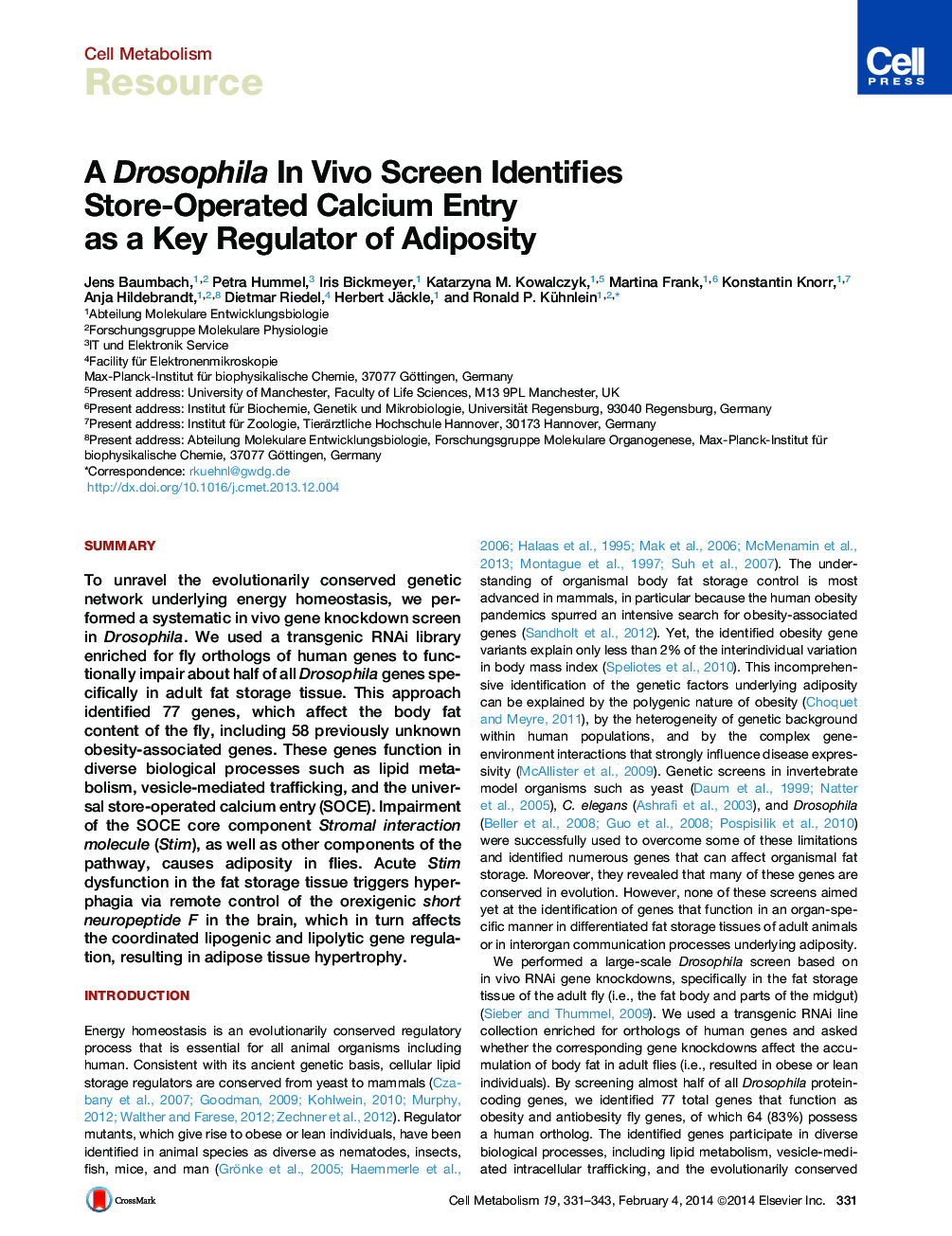| کد مقاله | کد نشریه | سال انتشار | مقاله انگلیسی | نسخه تمام متن |
|---|---|---|---|---|
| 2792694 | 1155077 | 2014 | 13 صفحه PDF | دانلود رایگان |

• Functional genetic screening identifies 77 obesity-related genes of adult Drosophila
• Adipose tissue store-operated calcium entry (SOCE) regulates the body fat content
• Stim adipose tissue dysfunction causes hyperphagia via brain short neuropeptide F
SummaryTo unravel the evolutionarily conserved genetic network underlying energy homeostasis, we performed a systematic in vivo gene knockdown screen in Drosophila. We used a transgenic RNAi library enriched for fly orthologs of human genes to functionally impair about half of all Drosophila genes specifically in adult fat storage tissue. This approach identified 77 genes, which affect the body fat content of the fly, including 58 previously unknown obesity-associated genes. These genes function in diverse biological processes such as lipid metabolism, vesicle-mediated trafficking, and the universal store-operated calcium entry (SOCE). Impairment of the SOCE core component Stromal interaction molecule (Stim), as well as other components of the pathway, causes adiposity in flies. Acute Stim dysfunction in the fat storage tissue triggers hyperphagia via remote control of the orexigenic short neuropeptide F in the brain, which in turn affects the coordinated lipogenic and lipolytic gene regulation, resulting in adipose tissue hypertrophy.
Graphical AbstractFigure optionsDownload high-quality image (464 K)Download as PowerPoint slide
Journal: - Volume 19, Issue 2, 4 February 2014, Pages 331–343